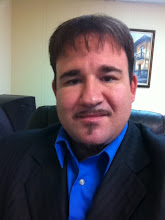GAINESVILLE, Fla. – Oct. 2, 2008 – Long before the debate over a federal bailout of the nation's financial institutions took center stage, sagging property values and soaring mortgage payments triggered in part by adjustable interest rates and increasing taxes threatened to force thousands of Floridians into foreclosure.
According to RealtyTrac, Florida's 44,000 foreclosure filings in August trailed only California's in the number of properties affected. California had 101,724 filings. Florida's foreclosure troubles surpassed the rest of the top five states: Arizona, 14,333; Michigan,13,605; and Nevada, 11,706.
Much like Southern California, Arizona and Nevada, Florida experienced a home-building boom earlier this decade, says David Denslow, professor and research economist at the University of Florida.
"There were lots and lots of people who were busily selling real estate. The homeownership rate here goes up from 66% to 72% between 2000 and 2006 -- that's a huge change," Denslow says.
"All of a sudden, the population growth slowed. The housing sales slowed. And the construction workers left," Denslow says. "And so, we've been in a recession since roughly May of 2007."
Though the presidential campaigns of Republican John McCain and Democrat Barack Obama have presented various ideas for handling the real estate crisis, residents don't agree on how much difference the next president can make.
"I wish we could have two presidents. I think it's too much for one person," says Belkis Young, 45, of Cape Coral, Fla.
Young says lenders call at "all hours of the day" since she got behind on mortgages for her home and two rental properties. She's an undecided voter.
McCain has called for the creation of a U.S. Justice Department "mortgage abuse task force." It would "offer assistance to state attorney generals who are investigating abusive lending practices," says Mario Diaz, McCain's Southeast regional communication director.
McCain, who flew to Washington on Wednesday for a Senate vote on the bailout measure, has also proposed short-term steps, saying the Treasury Department should use an already-approved $1 trillion fund to buy up bad mortgages. "We are in the greatest financial crisis of our lifetimes," McCain told a business roundtable in Des Moines on Tuesday.
Obama, who also flew back to Washington on Wednesday for the vote, has said he wants to create a "universal mortgage credit" for about 10 million homeowners, most of whom earn less than $50,000 per year. The average credit would be $500, he has said.
In addition, Obama has proposed an emergency economic plan to save up to 1 million jobs nationally, says Adrianne Marsh, a campaign spokeswoman.
The proposals remain intact, in light of the bailout, she said Wednesday.
Statewide, Denslow says, Florida lost nearly 100,000 jobs last year. He says he expects the state economy doldrums to continue until at least next summer -- longer if the economy continues to flounder.
"There's such a backlog of people that aren't in position to do anything with their house, and these are families that are being affected economically in many ways," says Dale Young, president of the Melbourne Area Association of Realtors. "We're not going to pull out of this for a couple years -- and that's before we got into this $700 billion bailout."
Floridians may be leaning toward Obama. A Quinnipiac University poll released Wednesday had Obama ahead in the state, 51% to 43%.
Florida has historically leaned to the Republican side, although Bill Clinton beat Bob Dole in 1996. President Bush received 52% of Florida's votes in 2004 and 49% in 2000. The latter result is from the vote when "hanging chads" on ballot punch cards delayed the election's outcome for 36 days and sparked a bitter fight before the U.S. Supreme Court stopped a statewide recount, giving Florida -- and the White House -- to Bush by 537 votes.
Henry Fishkind, a former University of Florida associate professor and president of the Fishkind and Associates economic and financial consulting firm in Orlando, says he thinks "this crisis hurts McCain's prospects significantly. McCain long has been a proponent of deregulation and only recently came to support more financial institution regulation."
Cindy Kelley, president of the Merritt Island-based Space Coast Association of Realtors, says she doubts either Obama or McCain can fix Florida's real estate mess.
"The bottom line is, the president doesn't have that kind of power," she says.
Kelley says she hopes Congress will regulate the banking industry to standardize foreclosures and short sales, which, she says, are those in which the lender is persuaded to accept less than the balance of the mortgage.
William and DeAnna Zeigler are caught in the mortgage squeeze.
They have slashed expenses, despite having three children at home. They work two jobs each, trying in vain to meet a $2,400-a-month mortgage on a home bought about five years ago in the southwest Florida city of Cape Coral.
Payments weren't always so high: Escrowed property taxes and insurance premiums have soared by $400 a month, DeAnna Zeigler says.
Also, William Zeigler had to take a lower-paying job when his former city building inspector position was eliminated.
Much of Florida's real estate problems occurred because "people got into mortgages over their heads," DeAnna Zeigler says, adding, "Other things contributed to my hardships."
"I think about it 100% of the time," she says. "I feel like I'm failing."
Belkis Young says she wants more specifics from McCain and Obama and their running mates -- and not only about how they would ease the mortgage crisis that's put her "in a big bind."
"There are people who can't afford health care; who can't afford groceries," Young says. "We need something to help the people who are desperate.
"Whoever comes up with the best plan to do this will get my vote."
Cadence Fishing CS10 Spinning Reel Review
7 years ago















No comments:
Post a Comment